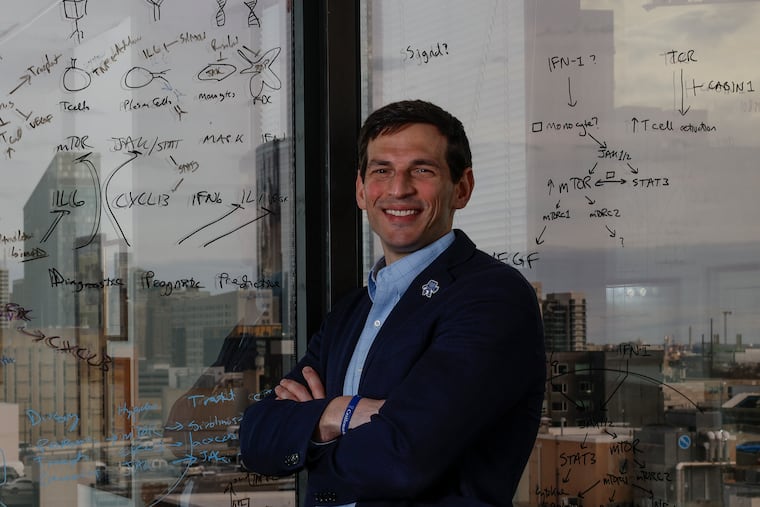David Fajgenbaum, Penn immunologist, awarded the John Scott Award for his significant contributions to medical research.
David Fajgenbaum, an esteemed immunologist at Penn Medicine, is set to receive a significant accolade next month as one of three recipients of the prestigious John Scott Award, presented by the American Philosophical Society. This award, which dates back to 1816, is designed to recognize individuals whose scientific contributions have notably advanced public health. Each honoree will receive a ,000 cash prize.
Fajgenbaum, who gained remarkable attention for his innovative work with the nonprofit organization Every Cure, focuses on the repurposing of existing medications through the use of artificial intelligence to find new applications. This year, he shares the honor with Bonnie L. Bassler, a molecular biologist from Princeton University, and Robert K. Prud’homme, a chemical engineer also at Princeton. Together, these scientists have made groundbreaking advancements that have a lasting impact on public health.
Fajgenbaum’s journey into medical research began 15 years ago when he was diagnosed with Idiopathic Multicentric Castleman Disease, a rare and often severe condition. Confronted with his own health crisis, he took the initiative to store his blood samples in a university laboratory, where he began conducting personal examinations for abnormalities. It was during this period that he learned of a drug typically prescribed to organ transplant recipients, which suppresses a certain protein that was abnormally high in his own blood tests.
After persuading his medical team to allow him to trial the drug, Fajgenbaum experienced positive results that not only aided his health but inspired a broader mission. In an effort to continue research on drug repurposing, he founded Every Cure, which employs AI to analyze extensive databases to uncover potential matches between existing drugs and rare diseases that currently have limited treatment options.
Traditionally, identifying medicinal matches involves a lengthy and complex process that examines one drug and one disease at a time, often spanning several years. With the integration of artificial intelligence, researchers can now simultaneously analyze numerous drugs and disease profiles, expediting the search for viable alternatives.
Fajgenbaum has remarked that while developing new drugs is an impressive but costly endeavor—exceeding one billion dollars and taking over 15 years—repurposing existing medications can be accomplished for less than one percent of that cost and in a much shorter timeframe. However, due to profitability concerns, such repurposing is not frequently pursued.
Fajgenbaum’s influential memoir, “Chasing My Cure,” is also being adapted into a film, further highlighting his journey and ongoing commitment to transforming medical treatment through innovative research techniques. Through his work with Every Cure, he continues to champion accessibility in medical treatments, particularly for rare diseases that have historically been neglected.
Media News Source.







